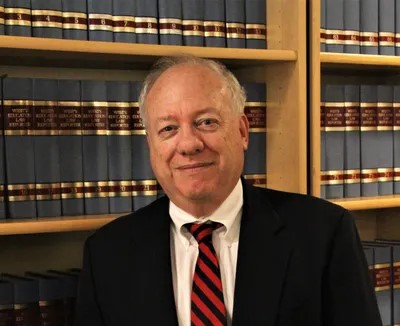Introduction
Since at least 1986, when tax brackets for almost all Americans were compressed, and as a result of Rev. Rul. 85-13, which held that grantor trusts effectively did not exist for income tax purposes, grantor trusts have been one of the most commonly used estate tax planning tools. A “grantor trust” is a trust in which the income is attributed to the creator of the trust under Section 671 of the Internal Revenue Code of 1986 (or in certain cases to the trust beneficiary under Section 678), as though the trust did not exist.
Many, if not most, common lifetime estate tax planning strategies have been built on the chassis of a grantor trust, exploiting the differences between the income tax rules and the estate tax inclusion rules to create a trust that is excluded from the grantor’s estate for estate tax purposes, yet invisible for income tax purposes. This has many benefits. Because the income of the trust is attributed to the grantor, tax on the income or gain experienced by the trust will be paid by the grantor, allowing the trust to grow on a tax-free compounded basis, which is one of the most powerful forces in financial planning. The IRS conceded in Rev. Rul 2004-64 that the grantor’s payment of tax on income generated by trust assets is not a gift to the trust or its beneficiaries, essentially allowing those tax payments to constitute additional tax-free gifts to the trust. Under the current law, grantor trust status alone does not cause inclusion in the grantor’s estate for estate tax purposes, so all appreciation and income (the tax on which was paid by the grantor) pass free of transfer tax. A so-called grantor retained annuity trust (GRAT), described in Reg. 25.2702-3(b), almost always will be a grantor trust, which usually is beneficial because appreciated assets can be used to pay an annuity back to the grantor without gain recognition. The sale or purchase of an appreciated asset between a grantor and a grantor trust does not cause gain recognition, because of the determination in Rev. Rul 85-13, which can allow a reshuffling of assets in and out of the trust free of income tax (with the hope that appreciation of the assets will generally occur while the assets are held by the trust, outside the taxable estate of the grantor, and depreciation will happen while assets are held by the grantor).
What the Proposals in Congress Could Do to Grantor Trusts
Proposals now in bill form in the House Ways & Means Committee would have far-reaching effects on grantor trusts. One such proposal, contained in what would be new Section 2901, would cause a grantor trust to be included in the grantor’s gross estate at death even if the grantor retained no interest in or power over the trust, eliminating the advantages described above that result from the differences in the transfer tax rules and the income tax rules. Another proposal creates new Section 1062, which provides that transactions between a grantor and a grantor trust would no longer be disregarded for income tax purposes. Under this proposed change, both a sale of an appreciated asset to a grantor trust by its grantor and the distribution of an appreciated asset from a GRAT in satisfaction of the grantor’s entitlement to an annuity would result in taxable gain.
There is some uncertainty as to how far back these changes would reach. Both new sections provide that they apply only to new grantor trusts created after their effective date, or with respect to additional contributions made to existing trusts after the effective date. The draft of the House Ways & Means bill suggests that the effective date would be when the President signs the bill that contains these new provisions into law. However, statements by certain members of the staff of the Committee suggest a possible earlier effective date. Also, some uncertainty has arisen by what is meant by the term “contribution.” Although an initial reaction might be that a contribution is simply any new gift to a trust, some have contended that any transaction between a grantor trust and its grantor might be treated as a contribution, even if made for full value. Some have expressed concern that the grantor’s payment of income tax on the trust’s income will be treated as a contribution even though that payment by the grantor is mandated by law and is not treated as a gift under current law.
If a later gift is treated as a contribution that does not fall under the grandfathering clause of the proposed legislation, irrevocable life insurance trusts (ILITs) will face a problem. An ILIT is typically created to avoid estate tax on life insurance proceeds by excluding those proceed from the insured person’s gross estate. Usually, the trust’s grantor makes periodic gifts to the trust that are used to pay annual insurance policy premiums. Almost all ILITs are (or are thought to be) grantor trusts. For example, a trust that may benefit the grantor’s spouse is a grantor trust under Section 677(a)(1) and (2), and it is possible that, unless the trust prohibits the use of the trust’s income to pay premiums on a policy on the life of the grantor or the grantor’s spouse, the trust will be a grantor trust under Section 677(a)(3) as well. If the ILIT is not “grandfathered,” or even if it is, and future payments of premiums by the grantor would constitute additional contributions, then the ILIT would be included in the grantor’s estate, defeating the purpose for which it was created.
What, If Anything, Should be Done in Light of the Proposals?
At least three questions seem to arise. First, can a trust that is a grantor trust cease to be one? The answer is an easy yes if the trustee may and does distribute all the assets out of the trust. If the trustee does not have such authority or does not want to make a distribution of all assets of the trust because the trustee believes it is not prudent, then the job of terminating grantor trust status will be more challenging. For example, if the grantor’s spouse is a beneficiary to whom trust distributions must or may be made, it will be a grantor trust unless these distributions can be made only with the approval or consent of an adverse party within the meaning of Section 672. It may also be necessary to renounce certain powers, such as a power of substitution under Section 675, and powers of appointment that trigger grantor trust status under Section 674. If possible, the trust could be modified by a “decanting” (see, e.g., NY EPTL 10-6.6 and the provisions allowing for decanting in the InterActive Legal documents) or, perhaps, amended by some other means, either to remove the spouse as a beneficiary or to require the consent of an adverse party to all distributions to the spouse. If the trust is a marital deduction trust (such as a lifetime QTIP trust), the spouse cannot be removed as a beneficiary or have limits on income distributions. However, because a marital deduction trust will be included in the spouse’s gross estate, the proposed legislation may exclude such grantor trusts from being in the gross estate of the grantor—and it seems that transactions between a marital deduction trust and the grantor should not be income taxable by reason of Section 1041, which exempts transfers between spouses from being income taxable. Treatment of a marital deduction trust is frankly unclear at this point (as are many aspects of the proposed legislation), and it is hoped that these open issues will be addressed during the legislative process.
For an ILIT, all premiums on policies owned by the trust could be made before the effective date of proposed Section 2901 (although, as indicated, that date is somewhat uncertain) so that grantor trust status should not matter, as a general rule, and there will be no estate tax inclusion. A further alternative is to transfer funds to the ILIT, either as a large lump sum of cash or by way of split dollar loans described in Treas. Reg. 1.7872-15. This regulation indicates that any such loan, if it provides for interest in an amount at least equal to the applicable federal rate (AFR) will not be a gift. But, as stated above, there is some uncertainty whether full-value transfers will be excluded from being contributions. Perhaps, a safer route is to turn grantor trust status off by modifying the trust (by decanting or otherwise) to require adverse party consent for both premium payments and any distribution to the grantor’s spouse, although it may not be clear who would qualify as an adverse party for such purposes.
The second question is whether – or at least when – grantor trust status should be turned off (if possible). It seems appropriate to determine if doing so would cause significant adverse effects. In general, the Service’s position appears to be that a trust which converts from grantor trust status to non-grantor trust status is treated as if the grantor made a transfer of the assets from himself or herself to the trust at the time of the status conversion, in exchange for the consideration received by the grantor, if any. See Rev. Rul. 77-402. If the trust holds so-called “negative basis” property, gain will be recognized. See Rev. Rul 77-402 and Reg. 1.1001-2(c), Ex. 5. Also, if the trust holds the right to income in respect of a decedent (IRD) described in Section 691, then the inherent income in the right to the IRD (such as pre-death accrued interest on a bond passed into a trust at death, or certain pension plan interests held by the trust) will be recognized, as a general rule if grantor trust status is turned off.
It may not be wise to terminate grantor trust status if no further contributions are anticipated, and it may be best to wait until the legislation is clarified. If it turns out that it would be adverse for grantor trust status to continue, then it may be appropriate to proceed, if possible, with converting to a non-grantor trust . Perhaps it will be appropriate to get all documents ready to execute to change the status ahead of time, as there may be only a few days between when any House/Senate Conference agrees on a bill and it is sent to the President for signature (the date of signing is usually the law’s effective date unless a different effective date is specified, and the bill currently specifies no other effective date for the changes discussed above).
The third question that arises is whether ending grantor trust status will be worse than continuing it. In many cases, such as where no additional contributions to the trust are anticipated, it may be best to just let sleeping dogs lie. However, as indicated above, some have speculated that the grantor’s payment of income tax on the trust’s income may be an additional “contribution,” in which case some estate tax inclusion would occur. By the way, it is not at all certain if a “tainted” trust could be severed so that the part that would be included in the grantor’s estate or cause a later transaction with the grantor to be income taxable could be severed. No doubt guidance on that point will be requested.
It should be noted that the proposed legislation also contains provisions addressing the consequences of terminating grantor trust status, which would generally consider the termination of grantor trust status to be a gift of the trust assets at the time of such termination. See Proposed Sec. 2901(a)(3). Obviously, if a completed gift had already been made to the trust in an effort to use the grantor’s transfer tax exemption, such a deemed gift would be highly undesirable, even with proper adjustment for the previously made gift. While these provisions would only apply to a trust created after the effective date, or to the portion of a trust “attributable to a contribution made on or after the effective date,” there may be circumstances in which it would be wise to avoid the question of what constitutes a “contribution.” Trusts funded with negative basis assets (which would realize substantial gain if grantor trust status terminated) may be better structured as non-grantor trusts from inception, especially if the main purpose of the transfer into trust is to use the transfer tax exemption. In that way, if the legislation passes, there is no reason to be concerned about future inclusion in the estate of some portion of the trust or whether a payment of income taxes constitutes a new contribution. If the legislation does not pass and grantor trust treatment is desirable, it may be possible to modify the trust (or to decant the trust) to become a grantor trust. There is not much authority on the consequences of a change from non-grantor trust status to grantor trust status, although what is published may indicate that the change would not have the same negative income tax effects as the change from grantor trust status to non-grantor trust status. See CCA 200923024; PLR 20173012; PLR 20173001; and PLR 2017 30018 (none of which can be relied on as precedent).
Given the uncertainty around the tax consequences of grantor trusts, it would be prudent to identify situations in which a non-grantor trust may be preferable to a grantor trust in any event, because there would be no need to fiddle with a grantor trust at all in those cases. Where a Section 754 step-up in basis is desired, a sale between unrelated parties is necessary, such as between a grantor and a non-grantor trust. If there are questions about the grantor’s ability to continue to pay the income tax attributable to trust property, a non-grantor trust may be appropriate. In addition, if the grantor is in a higher effective income tax bracket than beneficiaries to whom distributions may be made, a non-grantor trust may be more effective at spreading the income tax burden. This situation could arise relative to state and local income tax deduction limits on real property, or where the grantor resides in a high income tax state and the beneficiaries in lower income tax states. Finally, there may be some circumstances in which it is better not to leave it to a judge to determine whether the income in a grantor trust (which is not distributable to the grantor) is an available resource for alimony or child support purposes, or for other similar purposes. See Lobb, Blattmachr and Zeydel, “When is a Non-Grantor Trust Preferable,” www.Peak Trust.com (November 2020). Because the Service identified transactions which toggle between grantor trust status, non-grantor trust status, and back to grantor trust status as “transactions of interest” in Notice 2007-73, it is not recommended that a trust go back and forth repeatedly. Having said that, there does not seem to be a problem with simply turning grantor trust status off or turning it on, as a one-time event.
Conclusions
In some cases, non-grantor trusts may be preferable to grantor trusts, but many estate planning trusts are structured as grantor trusts because of their potential advantages. The proposed legislation in Congress may represent the death knell for new grantor trusts. Although grantor trusts have been extensively used for estate tax planning and would be “grandfathered” from the negative changes proposed (assuming the grandfathering provision is retained in the final legislation), trusts can be “tainted” if any additional contributions are made to them. Watching the legislative developments and being in a position to act very promptly may be keys to dealing with these potential changes.
Meet the Authors

Mr. Blattmachr is a Principal in ILS Management, LLC and a retired member of Milbank Tweed Hadley & McCloy LLP in New York, NY and of the Alaska, California and New York Bars. He is recognized as one of the most creative trusts and estates lawyers in the country and is listed in The Best Lawyers in America. He has written and lectured extensively on estate and trust taxation and charitable giving.
Mr. Blattmachr graduated from Columbia University School of Law cum laude, where he was recognized as a Harlan Fiske Stone Scholar, and received his A.B. degree from Bucknell University, majoring in mathematics. He has served as a lecturer-in-law of the Columbia University School of Law and is an Adjunct Professor of Law at New York University Law School in its Masters in Tax Program (LLM). He is a former chairperson of the Trusts & Estates Law Section of the New York State Bar Association and of several committees of the American Bar Association. Mr. Blattmachr is a Fellow and a former Regent of the American College of Trust and Estate Counsel and past chair of its Estate and Gift Tax Committee. He is author or co-author of eight books and more than 500 articles on estate planning and tax topics.
Among professional activities, which are too numerous to list, Mr. Blattmachr has served as an Advisor on The American Law Institute, Restatement of the Law, Trusts 3rd; and as a Fellow of The New York Bar Foundation and a member of the American Bar Foundation.

Elizabeth (“Beth”) Boehmcke graduated cum laude from the University of Michigan Law School in 1993. After graduation from law school through 2003, she specialized in high net worth estate planning, with an emphasis on cross-border and asset protection planning, and the representation of fiduciaries managing complex trusts and family businesses.
During her career in New York, she was an associate attorney at both Rogers & Wells (now Clifford Chance) and Hodgson Russ in New York City. After a hiatus in her legal career to care for her children, she resumed her legal career by passing the Virginia bar in 2014 and began working for the Hook Law Center, P.C., where she expanded her estate planning practice to include elder law, specifically focusing on asset protection planning for Medicaid and Veteran’s benefits.
She is a proud graduate of the University of Virginia where she received a B.A. with distinction in Psychology in 1988 and is also a graduate of SUNY-Buffalo where she received an M.A. in Clinical Psychology in 1990.

Teresa Bush joined InterActive Legal in 2007 and serves as Director of Education and Content Support Services.
Ms. Bush has been licensed to practice law since 1991, and focused her practice exclusively on issues of estate and gift tax planning, probate, charitable planning, and estate and trust administration. She began her practice in a small law firm, planning for clients of all levels of wealth. Thereafter, she practiced for a number of years in the Tax Section of Kelly, Hart and Hallman, P.C. in Fort Worth, Texas, and as an estate and gift tax consultant for the Dallas office of Ernst & Young, in both cases focusing on planning for very high net worth clients.
Ms. Bush received her J.D. from the University of Texas School of Law, where she was a research assistant for Professor Stanley M. Johanson. She studied at Edinburgh University and the London School of Economics prior to obtaining a B.A. in Economics and Political Science from Rice University in Houston. While studying abroad, she worked as an intern for a Member of Parliament in the British House of Commons.
Ms. Bush taught legal research and writing as a Teaching Quizmaster in law school, and later taught estate planning extension courses for American College of Financial Services CLU candidates. She has presented several online webinars on estate planning and drafting topics, and is the author or co-author of a variety of estate planning articles.

Vanessa Kanaga currently serves as InterActive Legal’s Special Advisor on Estate Planning and Legal Strategy. She is the former CEO of InterActive Legal. Vanessa received her J.D. from Cornell Law School and holds a B.A. in Philosophy from Wichita State University, as well as an Advanced Professional Certificate from New York University School of Law. She is licensed in New York, Kansas, and Arizona, and currently lives in Arizona.
Prior to joining InterActive Legal in 2013, Vanessa practiced in New York, at Milbank LLP and Moses & Singer LLP, and in Kansas, at Hinkle Law Firm, LLC. She has experience in a range of estate planning matters, including high net worth tax planning and asset protection planning.
In 2024, Vanessa returned to the practice of law. She is Of Counsel at Becker and House, PLLC in Scottsdale, Arizona.




















































































